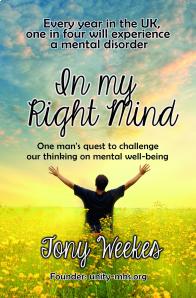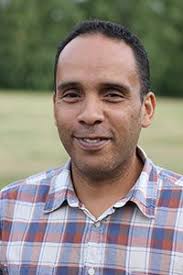
My name is Tony Weekes. I feel honoured to have been invited to post on Be Ur Own Light. I have witnessed at first-hand the mental suffering of close family members. In trying to ease their suffering, I have tried, sometimes succeeded, other times failed, to surmount the problems – which they have faced – caused by the current care system’s serious lack of funding and the resulting lack of cohesion.
I am not a professional in the field of mental health but I could not sit back and do nothing. So, I founded Unity MHS, a grassroots movement to revolutionise mental health care in the United Kingdom through education, recognition and intervention.
As a not-for-profit Company limited by guarantee (not a charity), Unity has no shareholders. Therefore, our driving force is the commitment we maintain on our mission rather than personal or financial gain. Our mission is two-fold:
- To challenge the way society views mental health.
- To facilitate vast improvement in access to ongoing care and socio-economic empowerment for those suffering with any kind of mental ill health.
I strongly believe that when mental health is viewed with the same level of importance as physical health, the funding necessary for the care system to operate as one unified force will be made available in an instant. Additionally, considering the component parts of the current system, I believe that most of the logistics required for UK mental health care to shine already exist. It is the consistent lack of investment which has allowed the system to show great strain under the pressure it faces.
The general-public are only now becoming aware of the possible mental health crisis we face as a country, or even as a planet. The conversations are becoming increasingly more open. However, it is only a widespread shift in public opinion, which will give the greatest burden of illness in the UK the priority status and corresponding national investment it desperately needs.
Hence, I set-off on my mission by writing In my right mind – a book which seeks to tackle this crisis from angles which may never have been considered in the public domain – to instigate that shift in the public’s perception of mental health.
Moving onto the second part of our mission, we aim to facilitate improvements through ongoing education, recognition and intervention in mental health. How can this be achieved?
Education:
There are two social entities which represent what should be the front line on a proactive approach to mental health. These are our schools and our families. The teachers at the school which my children attend actively promote working in educational partnership with parents. We believe this should and will also be the case with their mental well-being. Schools and parents will be given the tools they need to build resilience and notice signs of mental distress in youngsters at home and in the classroom. This will also give us all the knowledge to observe and act accordingly in the case of adolescents or even adults showing the signs of mental illness.
At Unity, we have developed a program with this aim and are in talks with a number of schools about implementation.
Recognition:
The earlier that the possibility of any form of illness is recognised, the sooner it can be diagnosed and the more effectively it can be treated before it gets more serious. The importance of early- recognition for the whole system, cannot be over-estimated. Once we have the knowledge required to notice what may be the early signs in any setting, with a good treatment plan in place then arguably any form of mental illness can be managed over time with persistence.
Intervention:
In many instances, in-patient care will be necessary. Arguably, this is the area where the current system is showing the greatest signs of strain as there are simply not enough beds available. This results in patients sometimes being discharged before they have received the level of care needed or in other instances, people being admitted for care hundreds of miles from home, away from their all-important support network.
For any form of serious illness, varying degrees of rehabilitation are needed to ensure that recovery from the illness can be sustained once a patient is discharged. Our greatest challenge is to generate all the resources necessary for these beds and the other resources necessary, to be made available sustainably. With the right treatment, for the right amount of time, followed by ongoing care and support in the community, social and economic empowerment would make positive long-term recovery more likely and hopefully minimise the risk of relapse.
The NHS is a world leader, Unity will also make mental health care here world renowned.

Tony Weekes is a mental health activist and founder of grassroots movement Unity MHS and author of the book, ‘In My Right Mind’. He campaigns for better mental health and can be found at www.unity-mhs.org and his book at www.unity-mhs.org/book. Tony can be contacted at progress@unity-mhs.org
